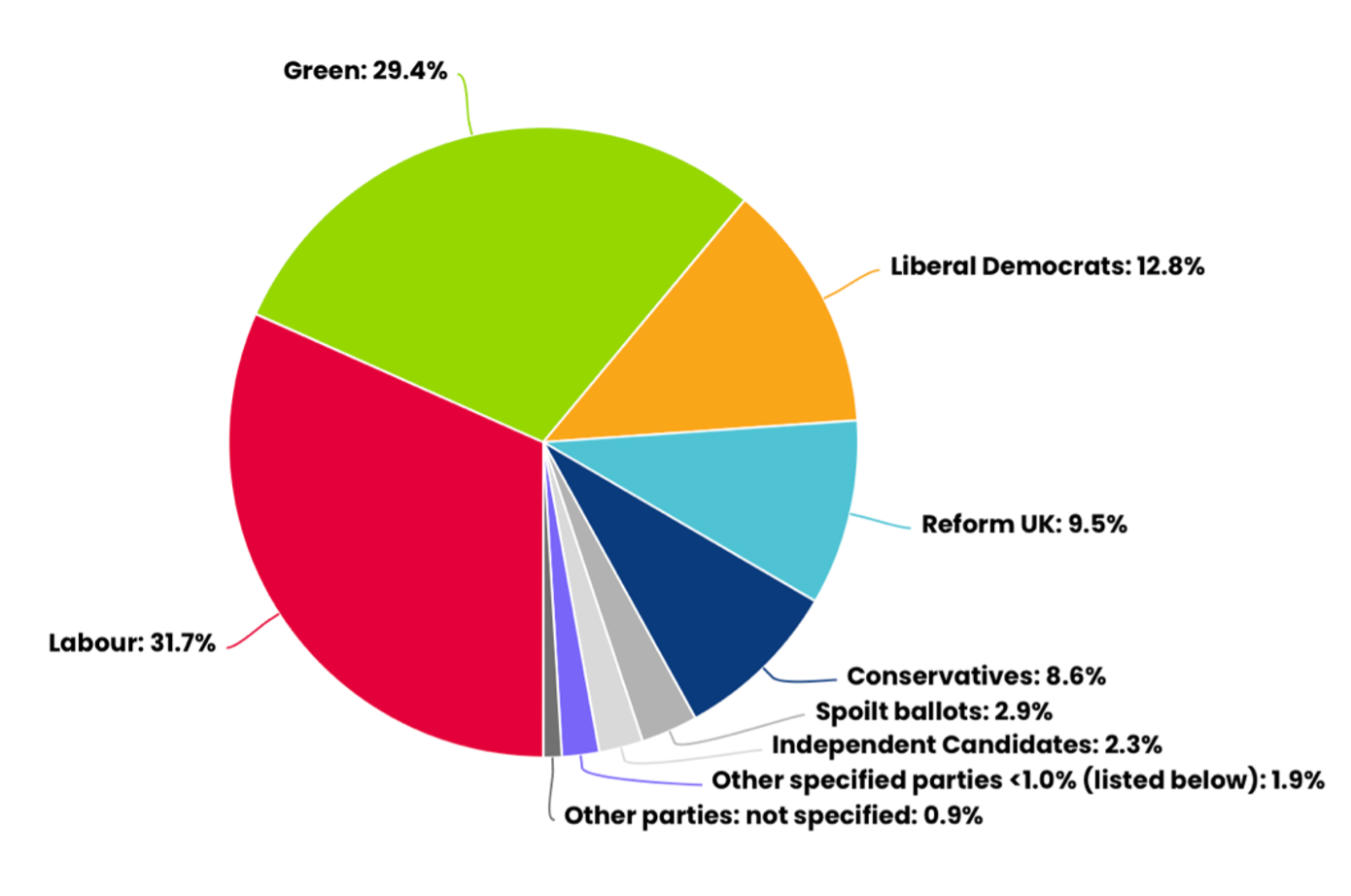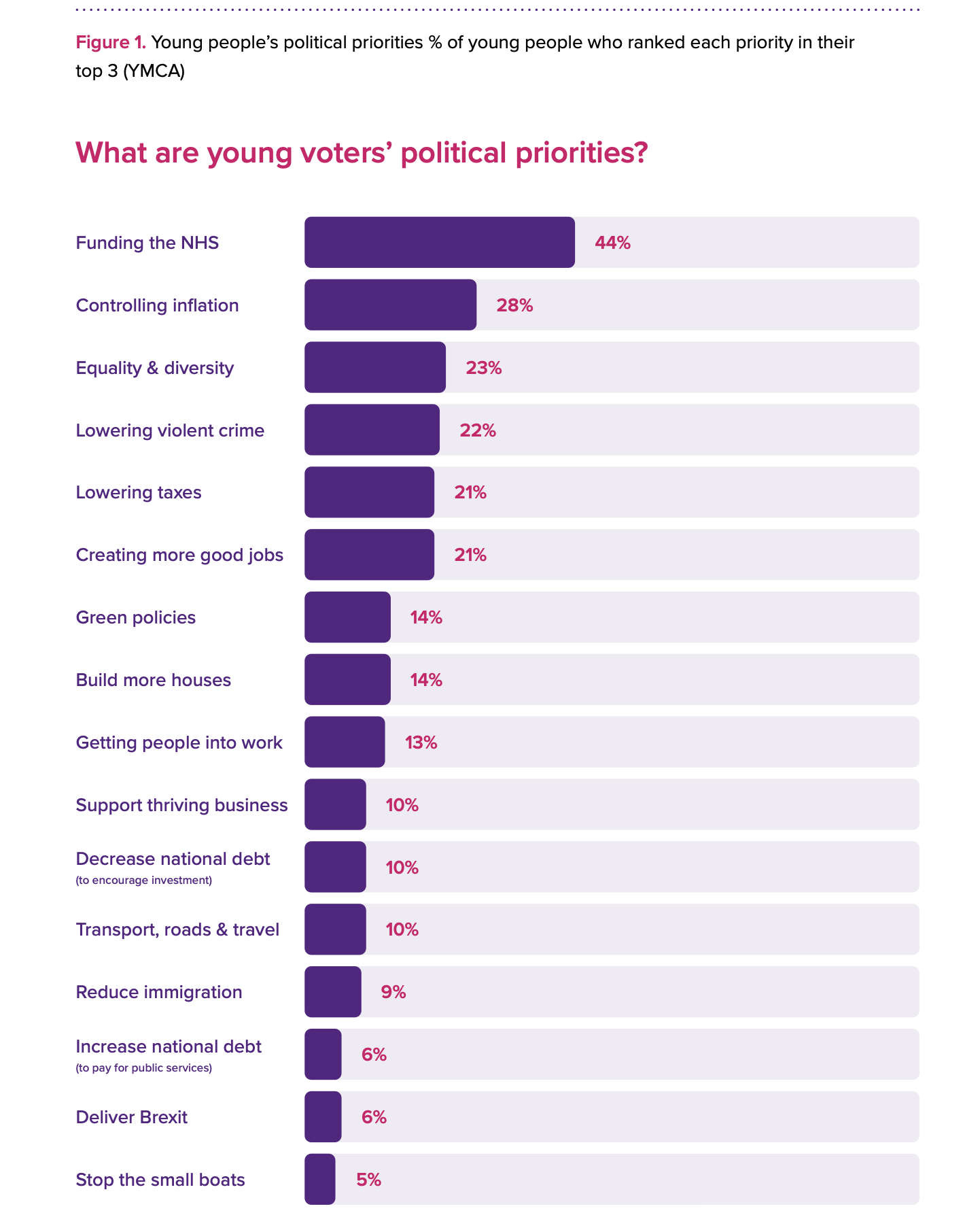The general election is tomorrow, and 22,889 children and young people have had their vote in the country’s largest-scale mock election to date. Their votes are now in, offering us the opportunity to consider their voices before we use that small pencil on a string to put an ‘x’ into the box of our choice. In this blog, Hannah explores the results and further spotlights some of the research included within Volume 28 of The Story, includes the voices of three young people who are of voting age, and reminds us of some practical ways to get young people involved in political discussions.
By 5pm on Friday 21st June, 22,889 children and young people (under voting age) had cast their vote in the Our Generation. Our Vote. mass-scale mock election and, at the end of last week, the results were released. The top five parties were Labour (31.7%) followed closely by Green (29.4%), whilst the Liberal Democrats (12.8%), Reform UK (9.5%), and Conservatives (8.6%) made up the rest. Do these results surprise you or is it what you expected? Do the results confirm or alter your view of the party you plan to vote for?

As part of the overall process, the young people were encouraged to think about the issues that would affect their voting choices. Provided with a list of issues and asked to rank in order of how important they were to them, the order was:
- Education (21.57%)
- Health (18.3%)
- Climate and Environment (17.85%)
- Cost of Living (16.05%)
- Safety (12.46%)
- Immigration and Refugees (7.68%)
- Other(s) (6.08%)
These results are interesting to compare to the chart featured on Page 9 of The Story, which shows young people’s political priorities according to the YMCA research (16–24-year-olds). As you can see, there is a significant overlap of issues which demonstrates the consistency of young people in their message of what they care about and what they want politicians to respond to. How do these priorities compare with yours?

Last week, Charles and I went and spoke to three young people (18-years-old) about politics, asking them the following questions taken from the research included in The Story:
- Do you agree that people who run the country listen to your views? And why?
- Do you feel empowered to change issues you care about?
- Where would you like to see change in the country?
- If Labour were to win the general election, do you think things will get better or worse? And why?
- Will you be voting in the general election?
Listen to their responses here:
How did their responses make you feel? Are you able to support the young people around you to vote on Thursday?
These interviews show, on a small scale, that young people have political passions – they care about justice, mental health, climate change (confirmed in the mock election and research above). However, they don’t feel these passions are listened to and, certainly within this small group of young people, are not equipped to engage or understand the formal political system. It is, in part therefore, our responsibility to engage and equip young people to care about politics in broad terms; caring about issues around them, debating healthily with their peers and those around them, and learning about the formal political system.
Before you go and vote on Thursday, therefore, let their voices echo in your mind:
“Young people’s opinions do matter, and we need to be heard. I am excited that through ‘Our Generation. Our Vote.’ children are getting the chance to tell politicians about the issues that matter to us and show adults that young people care about the future.”
— Maddy, 16, from Newcastle




